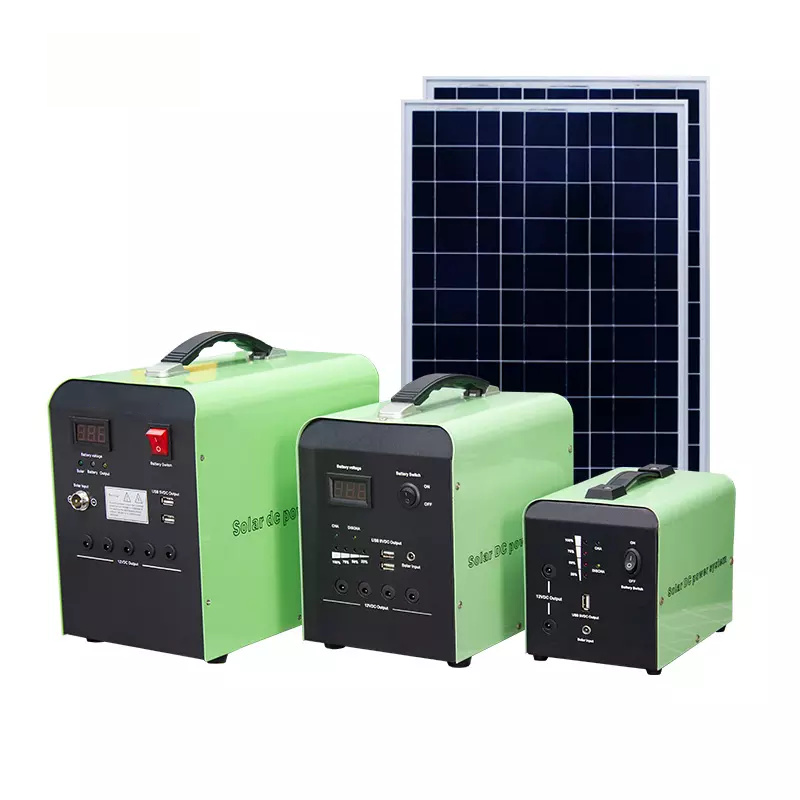Email format error
Email cannot be empty
Email already exists
6-20 characters(letters plus numbers only)
The password is inconsistent
Email format error
Email cannot be empty
Email does not exist
6-20 characters(letters plus numbers only)
The password is inconsistent


Solar Energy Complete System: A Comprehensive Guide
Solar energy has emerged as a leading renewable energy source, offering a sustainable and eco-friendly alternative to traditional fossil fuels. A complete solar energy system harnesses the sun's energy to produce electricity and can be tailored to meet various needs, from residential to commercial applications. This blog post will provide a detailed overview of solar energy complete systems, including their components, installation, maintenance, and the benefits they offer. We'll structure the content with clear headings and subheadings to ensure an organized and comprehensive read.
What is a Solar Energy Complete System?
A solar energy complete system, also known as a solar power system or photovoltaic (PV) system, is a set of components that work together to convert sunlight into usable electricity. These systems are designed to provide clean, renewable energy that can power homes, businesses, and even entire communities.
Key Components of a Solar Energy System
Understanding the components of a solar energy system is crucial for anyone considering the installation of such a system.
Solar Panels
- Function: The primary component that converts sunlight into direct current (DC) electricity.
- Types: Monocrystalline, polycrystalline, and thin-film are common types, each with varying efficiencies and price points.
Inverters
- Function: Converts the DC electricity produced by the solar panels into alternating current (AC) electricity, which can be used by homes and businesses.
- Types: String inverters, central inverters, and microinverters, each with different performance characteristics.
Mounting Structures
- Function: Securely hold the solar panels in place and position them to maximize sunlight exposure.
- Types: Roof-mounted, ground-mounted, and pole-mounted systems are common options.
Energy Storage
- Function: Batteries store excess electricity generated during the day for use during nighttime or periods of low sunlight.
- Types: Lead-acid, lithium-ion, and other advanced battery technologies are available.
Balance of System (BOS) Components
- Includes: Wiring, combiners, disconnects, and other electrical components necessary for the system to function.
Benefits of a Solar Energy Complete System
Environmental Impact
Solar energy systems contribute to a greener environment by reducing reliance on fossil fuels.
Reduction of Carbon Footprint
- Clean Energy: Generates electricity without emitting greenhouse gases.
- Sustainability: Encourages the use of a renewable resource that is virtually inexhaustible.
Financial Savings
Investing in a solar energy system can lead to significant financial benefits.
Lower Energy Bills
- Self-Generated Power: Reduces the amount of electricity purchased from the grid.
- Feed-In Tariffs: Some regions offer payments for excess energy fed back into the grid.
Increase in Property Value
- Appreciation: Homes with solar installations often have a higher market value.
- Attractive to Buyers: Potential homebuyers may be willing to pay more for an energy-efficient home.
Installation and Maintenance of a Solar Energy System
Installation Process
The installation process for a solar energy system involves several steps.
Site Assessment
- Shading Analysis: Determine the best location for maximum sunlight exposure.
- Structural Assessment: Ensure the roof can support the weight of the solar panels.
Installation
- Panel Placement: Secure the panels to the mounting structures.
- Inverter and Wiring: Connect the panels to the inverter and wire the system to the home's electrical panel.
Permitting and Inspection
- Local Regulations: Obtain necessary permits and ensure the system complies with local building codes.
- Final Inspection: Have the system inspected and approved by local authorities before operation.
Maintenance
Proper maintenance ensures the system operates at peak efficiency.
Regular Checks
- Cleaning: Panels should be cleaned regularly to ensure maximum sunlight absorption.
- Inspection: Check for any damage or wear that could affect performance.
Professional Maintenance
- Scheduled Services: Some solar companies offer maintenance packages.
- Warranty Checks: Regularly check the warranty terms and conditions for any required services.
Market Trends and Future Outlook
Technological Advancements
Innovations in solar technology are driving the industry forward.
High-Efficiency Panels
- Performance: New panel technologies offer higher efficiency and energy production.
- Aesthetics: Some panels are now designed to blend seamlessly with rooftops.
Smart Energy Management
- Monitoring: Advanced systems allow for real-time monitoring and management of solar energy production.
- Integration: Solar systems can be integrated with smart home technology for optimal energy use.
Policy and Incentives
Government policies and incentives are driving the adoption of solar power systems.
Tax Credits and Rebates
- Federal and State Incentives: Various tax credits and rebates are available for solar power system installations.
- Net Metering Policies: Allows homeowners to sell excess power back to the grid.
Competitive Landscape
The solar power market is becoming increasingly competitive.
Diversification
- Product Range: Offering a wide range of products can help businesses stay competitive.
- Custom Solutions: Providing tailored solutions to meet specific customer needs.
Conclusion
A solar energy complete system offers a practical and environmentally friendly way to generate electricity. With the benefits of reduced energy bills, increased property value, and a smaller carbon footprint, these systems are an attractive option for homeowners and businesses alike. As technology advances and policies support renewable energy, the future of solar power systems looks bright.
If you're considering installing a solar energy system in your home or business, start by researching the available options and incentives in your area. Speak with a local solar installer to discuss your energy needs and the potential for solar power. By taking the first steps towards solar energy, you can contribute to a more sustainable future and enjoy the financial and environmental benefits that come with it.


